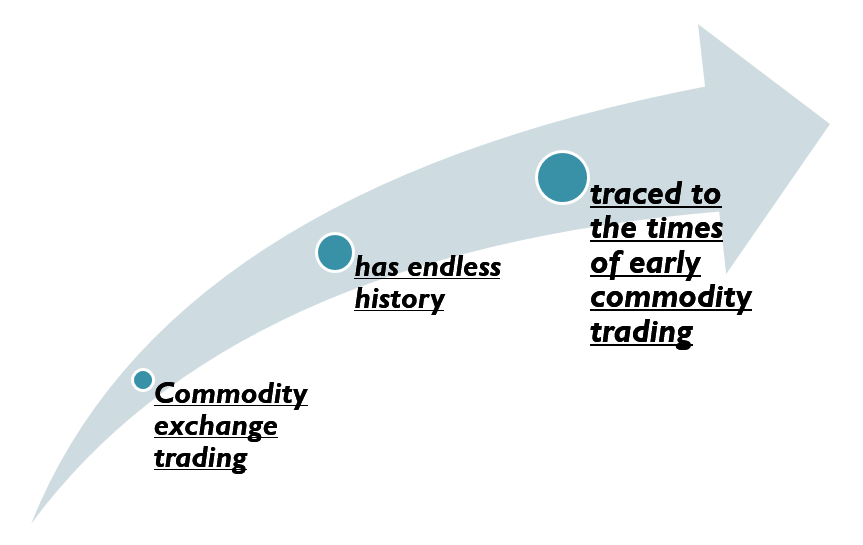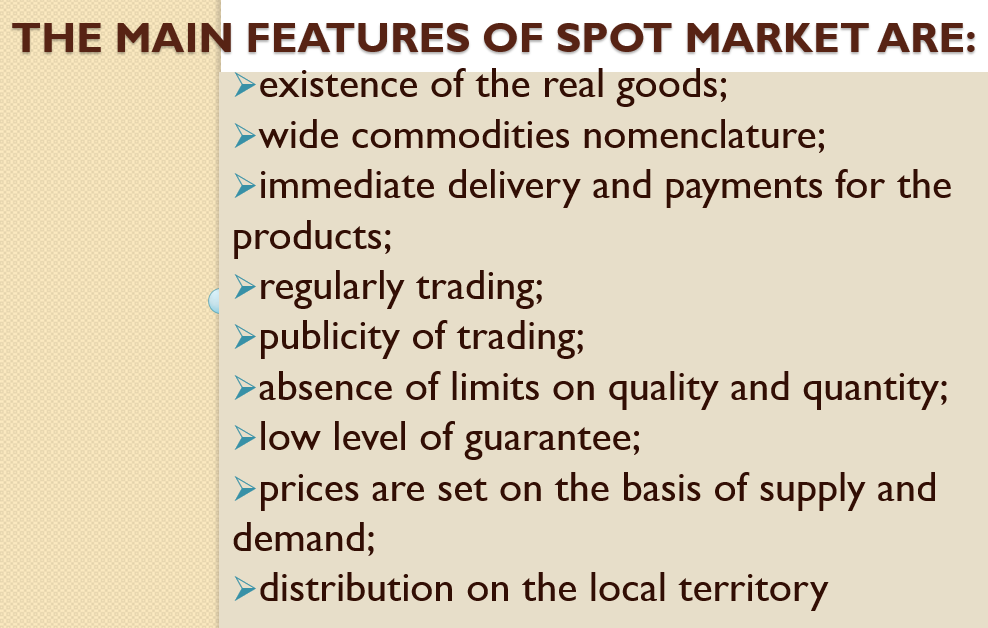International
stock exchange activity has developed over many centuries in order to achieve the modern level of perfection inherent in today's international
stock exchange platforms.
The development of international stock exchange trading, the emergence and evolution of stock exchange trading technology, were closely related to the formation of our civilization, changes in production technologies, the emergence of an organized form of trade in goods and
financial assets.
Given that international stock exchange activity is also a form of wholesale trade, one can trace the gradual improvement and development of international trade in goods, and later in other financial assets.
In our opinion, the stages of development of international stock exchange trading are associated with the prerequisites for the introduction of stock exchange trading in commodity markets. Today, stock exchange trading is a highly developed market mechanism, but several centuries ago, society gradually developed and implemented various types of trading activities.
Given that international exchange trading requires competitive advantages and operates only in the presence of a market environment, not all countries in the world have fully-fledged organized markets for goods and financial assets.
Before the emergence of international exchange activity, trade activity in the areas of retail and wholesale trade emerged and evolved in the world.
International exchange trade arose on the
basis of commodity exchange or barter transactions, later on local markets or bazaars, fairs and auctions. It should not be forgotten that the historical development of international trade and the forms of trade and commercial relations influenced the nature of future international exchange trading transactions.
Commodity exchange and barter took place at the dawn of civilization, in other words, thousands of years ago. Historical sources indicate that barter was used by people six or even ten thousand years ago. Nowadays, barter is also often used in conditions of any economic or financial crises of a national or international scale. Barter guarantees the granting of ownership rights to other persons to use the specified commodity assets without the presence of monetary units in the relationship. The exchange takes place without the use of valuable things that can replace money.
Historically, the first barter took place in ancient Mesopotamia, and after it was used by Phoenician tribes between their members and with traders from other countries. Later, the Babylonians began to use more complex exchange operations. They gradually began to exchange goods for precious metals or weapons.
Much later, barter was used in countries where an economy based on monetary settlements was impossible or where there were unstable economic relations, the result of which was inflation and a significant shortage of monetary units or currency. In the 90s of the last century, barter was also widely used in Ukraine.
Barter was also used in Scandinavia during military operations. In 1936, a group of Swiss entrepreneurs created an economic cooperative (wirtschaftsring), which became a fairly powerful barter operation. In 1979, a similar organization was opened in the USA - the International Association of Reciprocal Trade.
Barter transactions are carried out by participants in both domestic and foreign markets. International barter transactions were distinguished by the fact that they could involve import-export transactions without monetary settlements between banks. In international barter, equivalence must be achieved by balancing the cost of commodity exchange transactions at world prices.
The main disadvantages of barter trade are:
- the complexity of finding the necessary trading partners;
- problems in determining the value of assets;
- consideration of legal disputes that may occur during barter transactions.
According to the Economic Code of Ukraine, the subjects of barter transactions are individuals and legal entities. All legal features of barter transactions are also determined by the articles of the Civil Code of Ukraine.
After barter, regional markets or bazaars appeared. Local markets are organized places for carrying out trade transactions, that is, they represented an economic mechanism that unites the behavior of
buyers and sellers participating in the process of buying or selling commodity assets.
A market is an organized place where supply and demand meet. Markets can be analyzed from different points of view. One of the most common criteria for classifying markets is their division into types by geography of service:
- local;
- global;
- domestic;
- iternational.
Local markets are limited to local service and have a limit on the number of market participants, there are direct contracts between customers and suppliers, goods and services adapted to the needs of local market participants, as well as precise selection of advertising to reach as many local market participants as possible.
Local markets are limited to local service and have a limited number of market participants, there are direct contracts between customers and suppliers, goods and services tailored to the needs of local market participants, as well as precise selection of advertising to reach as many local market participants as possible.
The importance of territorial zoning lies in the number of market participants who can be involved in trading in the markets. Today, the global nature allows the accumulation of free investment ca
pital at the global level.


Шрифти
Розмір шрифта
Колір тексту
Колір тла
Кернінг шрифтів
Видимість картинок
Інтервал між літерами
Висота рядка
Виділити посилання
Text Alignment
